Local hero – Igor Antón's electrifying 2011 Vuelta a España victory in Bilbao
As the Vuelta returns to the Alto del Vivero, Basque rider re-lives that famous day and tells us the secrets of his home climb
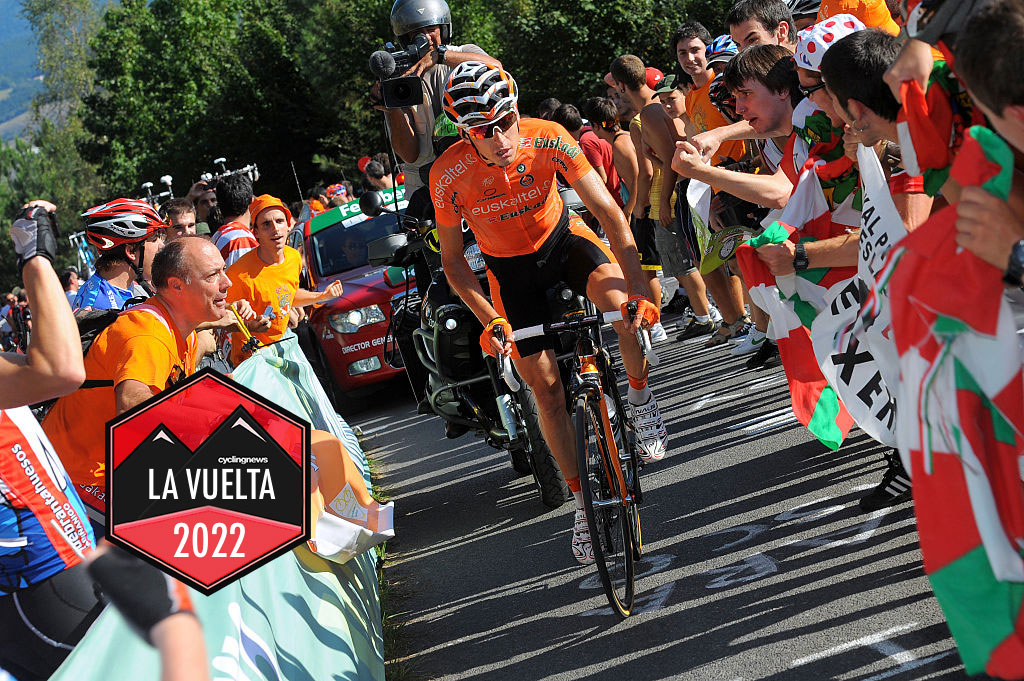
From the window of his home near Bilbao, former pro Igor Antón can see almost the full outline of the Alto del Vivero mountain, from the lush green fields and the scattered woodland on its lower slopes to the abandoned fairground and clump of radio antennae at the summit.
And he knows that on Wednesday the Vivero will be lined with thousands of Basque cycling fans, cheering on the riders on their double ascent of the Vuelta a España's key climb on Wednesday's stage 5.
But Antón also knows that the Alto del Vivero was where just over a decade ago, he was a key actor in one of the most important pages of the Vuelta's 86 years of history. And come what may on Wednesday, whether another Basque wins or not, that memory is Antón's alone.
To recap, 2011 was when the Vuelta finally returned to the Basque Country after a semi-enforced 33-year absence due to a tangle of political and economic reasons. But it returned in style as Antón, racing for local Basque team Euskaltel-Euskadi, led the Vuelta in a break as it crossed into the region, first riding through his hometown of Galdakao at the foot of the Vivero and then onto the nearby city centre in Bilbao.
Applauded and cheered on by a huge crowd of local fans, given the significance of the stage, that effort alone would have earned him at least a mention in the Vuelta history books. But then Antón did it all over again, after dropping his breakaway companions with 18km to go and going solo over the top of the Alto del Vivero.
He was en route to a victory which, in terms of the rider, the result, the team, and the race's background, ticked every box for maximum emotional impact possible, all in one fell swoop.
Antón hasn't moved on, geographically speaking, still living in the place where he grew up and close to where he took the most significant win of his career. But even if he had left Galdakao, and arguably even if he had not won in Bilbao 12 years ago, in many ways the importance of El Vivero would remain intact for him, nonetheless.
Get The Leadout Newsletter
The latest race content, interviews, features, reviews and expert buying guides, direct to your inbox!
"Ever since I was a kid, El Vivero was the mountain which formed me as a bike rider and where I grew up as a kid, too," Antón, who retired at the end of the 2018 Vuelta, tells Cyclingnews.
He's recounted elsewhere that he and his schoolmates would play in the trenches dating from the Spanish Civil War - nearly a century earlier - that crisscrossed El Vivero and that he would cross the mountain on the way to his grandparents' smallholding farm.
Then, later on, he says, "We'd go up El Vivero and roam around on our mountain bikes, or we'd go walking up there from our home, just on family excursions or for whatever reason. There's a picnic area at the top local families use a lot for barbecues and some spectacular views of Bilbao and we'd go up there all the time."
'An experience I'll never forget'
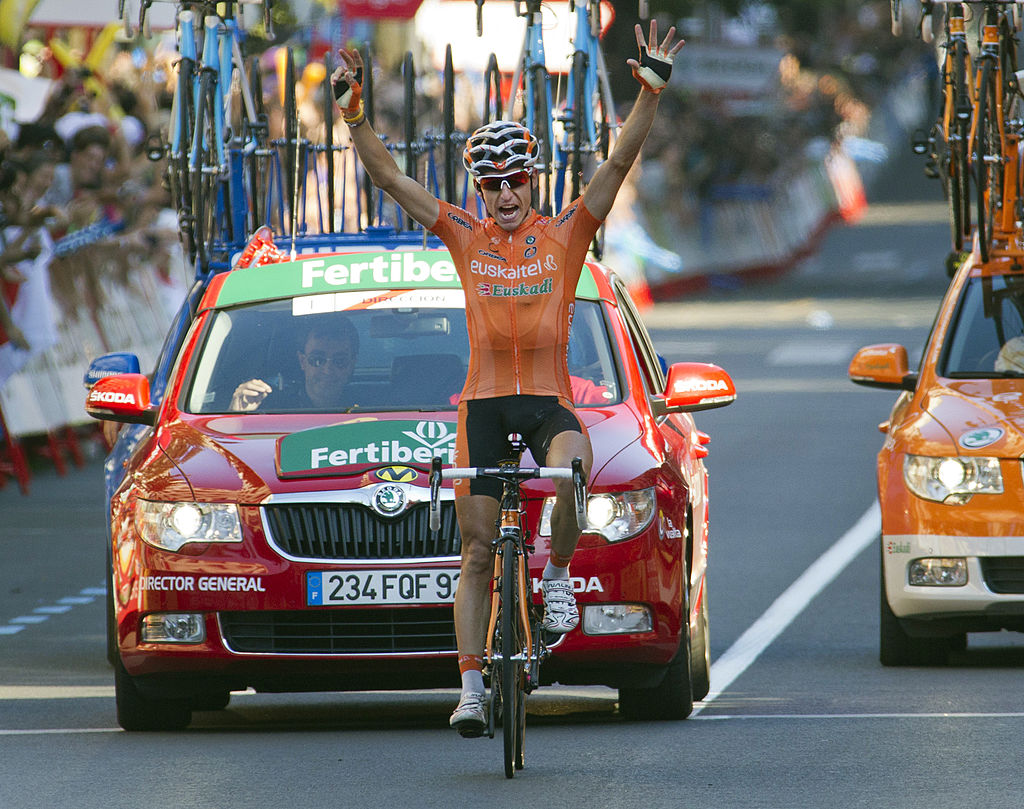
Antón was always a rider with a keen sense of the sport's history. During a rest day at the 2005 Giro d'Italia, rather than do the sensible thing and, well, rest, he and teammate Roberto Laiseka commandeered an Euskaltel-Euskadi car and drove off to pay their respects at Marco Pantani's grave in Cesenatico.
So, it was perhaps unsurprising that Antón was overjoyed when he heard in late 2010 that the Vuelta would be returning to the Basque Country
"I was really delighted, I knew how important it was for the Basque Country and for the sport. Then when I heard the Vuelta would be coming through my village, going over the Alto del Vivero and then onto Bilbao, well, that was even more amazing."
As Euskaltel-Euskadi team leader at the time – and after a bad fall at the foot of the Peña Cabarga climb ripped the Vuelta lead off his back in 2010 – Antón was always certain to race the Vuelta again the following year to settle unfinished business, if nothing else.
But the squad and Antón endured a very poor start to the 2011 race, and with the Basque stages in the last weekend of the race approaching fast, the pressure on Euskaltel-Euskadi to up their game against other, bigger, WorldTour teams was mounting fast.
"My first goal in the Vuelta that year was to go for the overall, but I got sick and wasn't in great shape form-wise. So, I had to forget about the GC and lose a bit of time to make it easier to get into breaks.
"But then I got sixth on the Angliru and then when we went up Peña Cabarga again, where Chris Froome won, I got fifth. So, I felt a lot more confident and decided to try and go for in the break on the stage into Euskadi. Getting in a break, for me, was always really, really hard. But I was determined I'd do it, and I managed it."
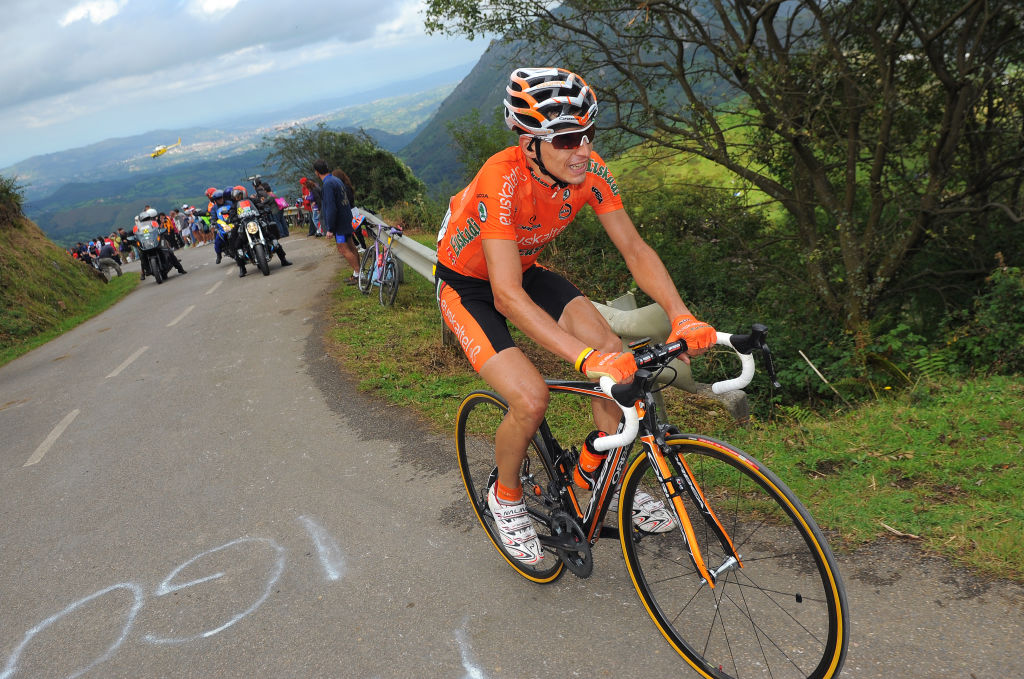
Part of the four-man move, Antón headed through his hometown of Galdakao on the very same day, by happy coincidence, that the town started its annual fiesta.
"So many of my friends told me they'd planned to see the race anyway and go to the fiestas. But when they saw on TV that I was in the break, they all came out even sooner to watch it go past and cheer me on a bit."
With Antón an added bonus attraction for the fiesta celebrations, it was no surprise that the Alto del Vivero climb and much of the route that day were lined with huge crowds of orange-clad Basque fans cheering on their local boy.
In fact, Antón said the first time he went over the Vivero, he had thoughts on his mind other than winning, considering there was still a long way to race.
"It was more a question of enjoying the moment. I could see my family on the roadside, even exchange a few words with my friends as I rode past them. The thing was I didn't really think we could win the stage because the bunch wasn't that far back, so I wasn't pushing it."
"But the second time over I was totally focussed on trying to win, and I didn't notice so much at all. Either way, it was an experience I'll never forget."
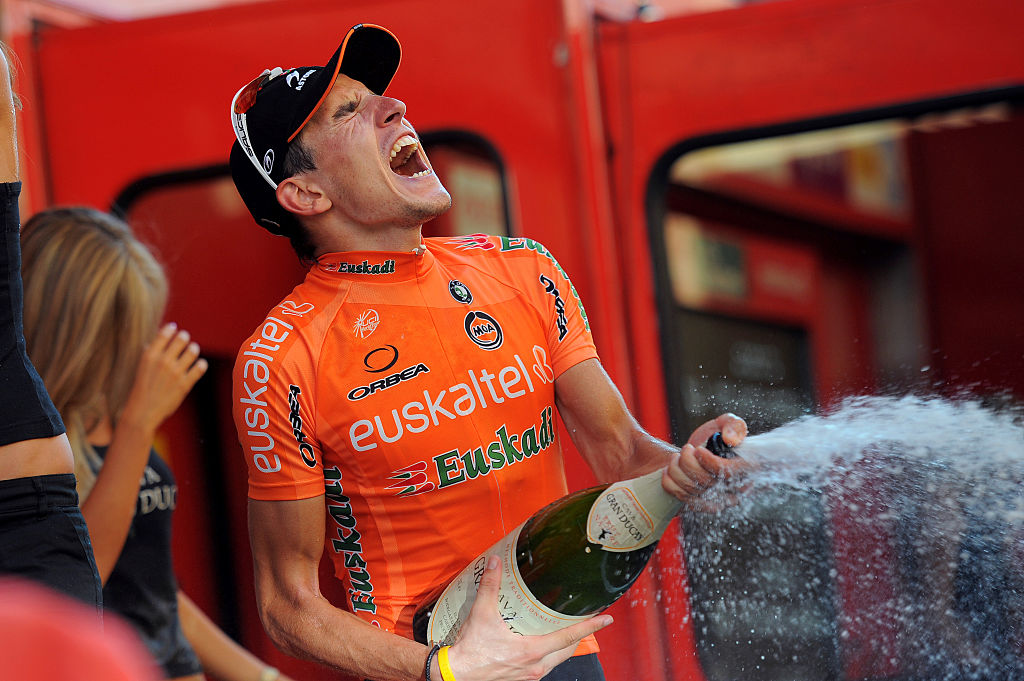
Analysing the Alto del Vivero
As for the climb itself, which the Vuelta peloton will face once again on Wednesday, Antón says, "It's got four approach roads, but they go up the same side as I did and on two occasions, just like in 2011.
"The climb starts in an area called Bengoetxe, which has the town school where I studied as a kid, and that's the hardest of the four ascents. But one big difference is that this is stage 5 and when I went up there it was stage 19.
"So, it won't be such a challenge and the bunch won't break apart as much as it did in 2011. But it'll still hurt and if you're caught napping or out of place, though, you'll pay."
At 4.6km long with an average of 8%, it is ranked as a second-category climb. "Bearing in mind there's a flat bit about halfway up and how that affects the average overall, it's actually pretty tough.
"The first part, around 1.5km before you get that break, is hard, but the second part is really tough, with gradients of 10% or more.
The road surfaces, he says, are generally very good. "Maybe a couple of little ruts but nothing serious. And it's two lanes wide, so it's not as if somebody punctures that the team car won't be able to reach them quickly.
"The start of the climb is a bit tricky, there's a tunnel just before. But it's not like some climbs which are like a narrow funnel, and which mean either you have to be on the front or put your foot down.
"That said, it's never the same being in the front 50 or 60 as being further back when you get onto a climb, knowing you'll have to push hard to make up lost ground just to be in contention. So, there'll be something of a battle for sure."
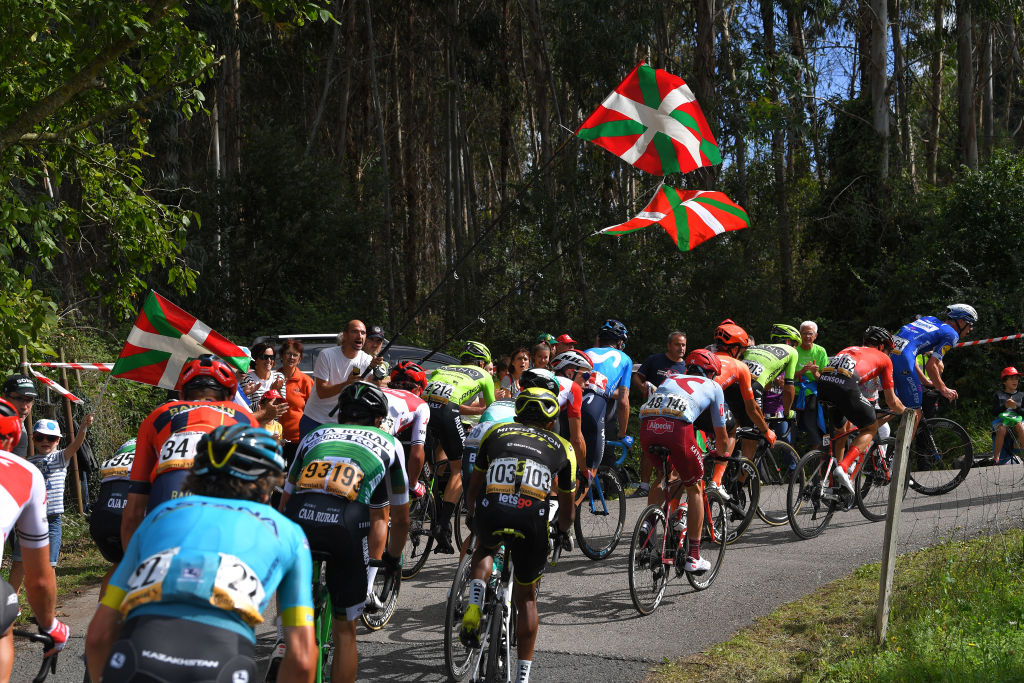
As for the descent, being all on two-lane roads, Antón says there are no really tricky parts.
"The drop-down to Bilbao is very fast, a 4% gradient at most and big ring stuff. It's 14km from the top to the finish, so you'll have to keep pushing on the pedals if you want to stay away and you have to remember to keep a bit of energy back for that."
In the last kilometre and a half of downhill, the gradient steepens notably, from 4 to 8%, but then there are still around 5km of flat to go to the finish in Bilbao, situated on the Gran Via where Antón won, and close to Athletic Club's San Mamés football stadium, or as locals nickname it, 'The Cathedral'.
"You're practically in the main part of Bilbao by the foot of the descent, but there'll be a series of broad boulevards before you get to the finish. So, a team with a sprinter chasing behind could begin to organise themselves and try and pull back the move," Antón warns.
"But in any case, there'll only be 40 or 50 riders in the sprint at most. That's if someone doesn't stay away like I did back then," he predicts.
11 years on and with wins on some of the toughest climbs in the Giro and the Vuelta – such as the Zoncolan and Calar Alto – to his name, as well as the home win in Bilbao, Antón has stayed linked to grassroots sport in Galdakao since he retired.
He works with a local cycling school training young kids in basic racing and riding skills. He has also spent the best part of a year overhauling and rebuilding a camper van, partly as a hobby, partly so he can take his family on excursions across Europe.
But on Wednesday afternoon, he'll be on Spanish TV, recounting his 2011 Vuelta experiences once again, and hopefully enjoying his moment in the limelight.
To remember what he did, though, Antón only has to look through the window of his house at the mountain above.
Alasdair Fotheringham has been reporting on cycling since 1991. He has covered every Tour de France since 1992 bar one, as well as numerous other bike races of all shapes and sizes, ranging from the Olympic Games in 2008 to the now sadly defunct Subida a Urkiola hill climb in Spain. As well as working for Cyclingnews, he has also written for The Independent, The Guardian, ProCycling, The Express and Reuters.
